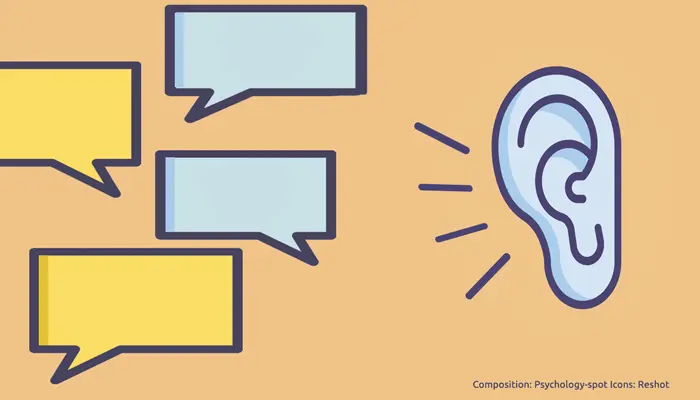
Most of the people, when exposed to a strong and prolonged noise, experience as a result a kind of ringing in the ears. It is a normal and transient effect. However, there are some who feel a constant noise, and are those who suffer of tinnitus.
Noise can affect one ear or both, although there are cases in which the person relates to hear the noise inside his head. Some people feel a buzzing or hissing, others refer to perceive a kind of melody or even the sound of a human voice.
We know that stress, fatigue, and excessive consumption of nervous system stimulants, such as coffee, and the exposure to loud noise or frequent and prolonged use of hearing aids, are all factors that aggravate tinnitus.
Why tinnitus cause so much trouble?
While time is passing the majority gets used to these sounds and ends up not to notice them. But 3% of the people reported that the constant noise can become unbearable, and eventually affect the quality of life.
Almost always, the problem is due to neural connections which are established outside of the auditory system, triggering this way the nerve centers that can provoke anxiety and fear, depending on whether the limbic system is involved or the autonomous.
When tinnitus causes a negative emotional response, a reaction of rejection is produced, which prevents the person from concentrating in daily activities or even sleep well. In fact, we cannot forget that these sounds are intensified when there is silence around as background noise fail to mitigate them. Therefore, they can cause problems such as insomnia when it is time to sleep.
This problem may also end up causing psychological disorders such as anxiety and depression. In fact, tinnitus is often linked to a pessimistic view of life and the appearance of suicide ideas. It was also found that people most annoyed by these sounds are those with a type D personality (a tendency to irritation and pessimism with marked insecurity and low self-esteem).
What are the main causes of tinnitus?
In some cases tinnitus is caused by an internal or middle ear problem; a perforated eardrum, a plug of earwax, an infection or a benign tumor. Meniere’s syndrome, the labyrinthine infarction and acoustic trauma can also cause this problem. In most cases the tinnitus is often accompanied by some degree of hearing loss.
In other cases, tinnitus can be caused by noises that emit the body itself and the doctor can hear them during an exploration. These sounds can be synchronized with the heartbeat, which indicates that the cause could be circulatory or vascular type, but can also be caused by muscle contractions inside the ear or the surrounding areas.
However, the cause of tinnitus can also be found in the brain. There are people who show an abnormal activation of brain areas responsible for processing sounds. In practice, these areas emit a continuous signal which is what causes the noise in the ears, almost always as a result of hearing loss.
The treatment of tinnitus should be multidisciplinary
It is estimated that with proper treatment more than 80% of patients with tinnitus can go back to a normal life. But it is important to undergo a series of tests, which will try to identify the cause of the problem. Therefore, it is better to turn to a specialized center that offers a multidisciplinary treatment.
The TRT therapy (Tinnitus Retraing Therapy) is the most widespread, and its aim is to get the person used to the noise, so that it does not interfere in his daily life anymore. The treatment is based on a neurophysiologic model in which it is important to know how the sound is processed, from the ear to the brain.
In fact, the structures of the central nervous system are the ones that make the sounds are amplified. When we give them an excessive meaning, it is activated an alarm that is precisely what generates these hassles. Treatment is directed essentially to tell the nervous system that the sound is not important and it should not focus on it.
To achieve this generally are combined the sound therapy and the psychological treatment. With the sound therapy it is incorporated an external sound to avoid the silence and that the intensity of noise increases. On the other hand, the psychological treatment focuses in making sure that the person becomes aware of what is going on and interrupt the negative connection with the sound, using different techniques ranging from cognitive restructuring and EMDR (Eye Movement Desensitization and Reprocessing).
In more complicated cases, when the tinnitus is resistant to conventional treatment, cochlear implants have shown to be an effective strategy. Even if this surgery is usually recommended for people with severe or profound bilateral hearing loss, various studies have found that even a unilateral cochlear implant benefits people with bilateral tinnitus.
It is thought that these implants can vary the abnormal activity of hair cells, the mechanism behind many cases of tinnitus, so you can appreciate the immediate effects even if the implant has not been activated or is turned off.
Moreover, if the noise in the ears is caused by insufficient cortical organization due to lack of peripheral afferent, the cochlear implant helps restore sensory inputs allowing the auditory nervous system to restructure successfully. In these cases, an improvement can be noted generally after three months.
Sources:
Der, C. & Pardo, J. (2010) Implante coclear para el manejo del tinnitus intratable en pacientes con hipoacusia unilateral. Rev. Otorrinolaringol. Cir. Cabeza Cuello; 70: 265-272.
Quaranta, N. et. Al. (2004) Tinnitus and cochlear implantation. IntJ Audiol; 43: 245-251.
Miyamoto, R.T. & Bichey, B. (2003) Cochlear Implants for suppression of tinnitus. Otolaryngol Clin N Am; 36: 345-252.



